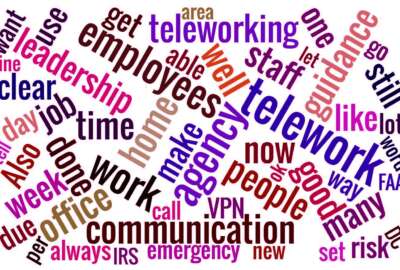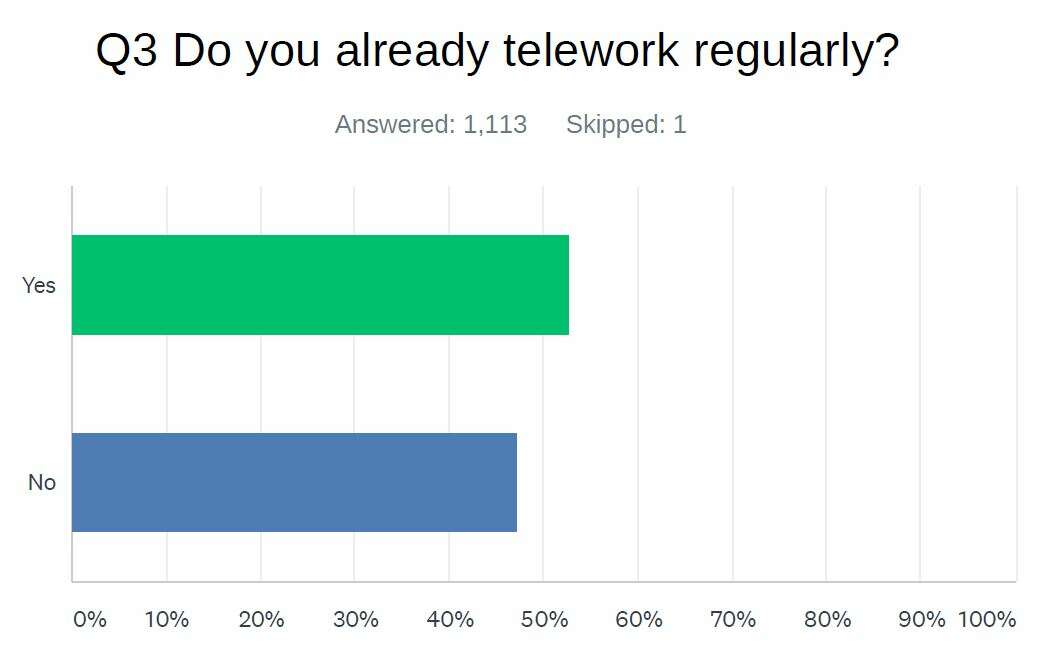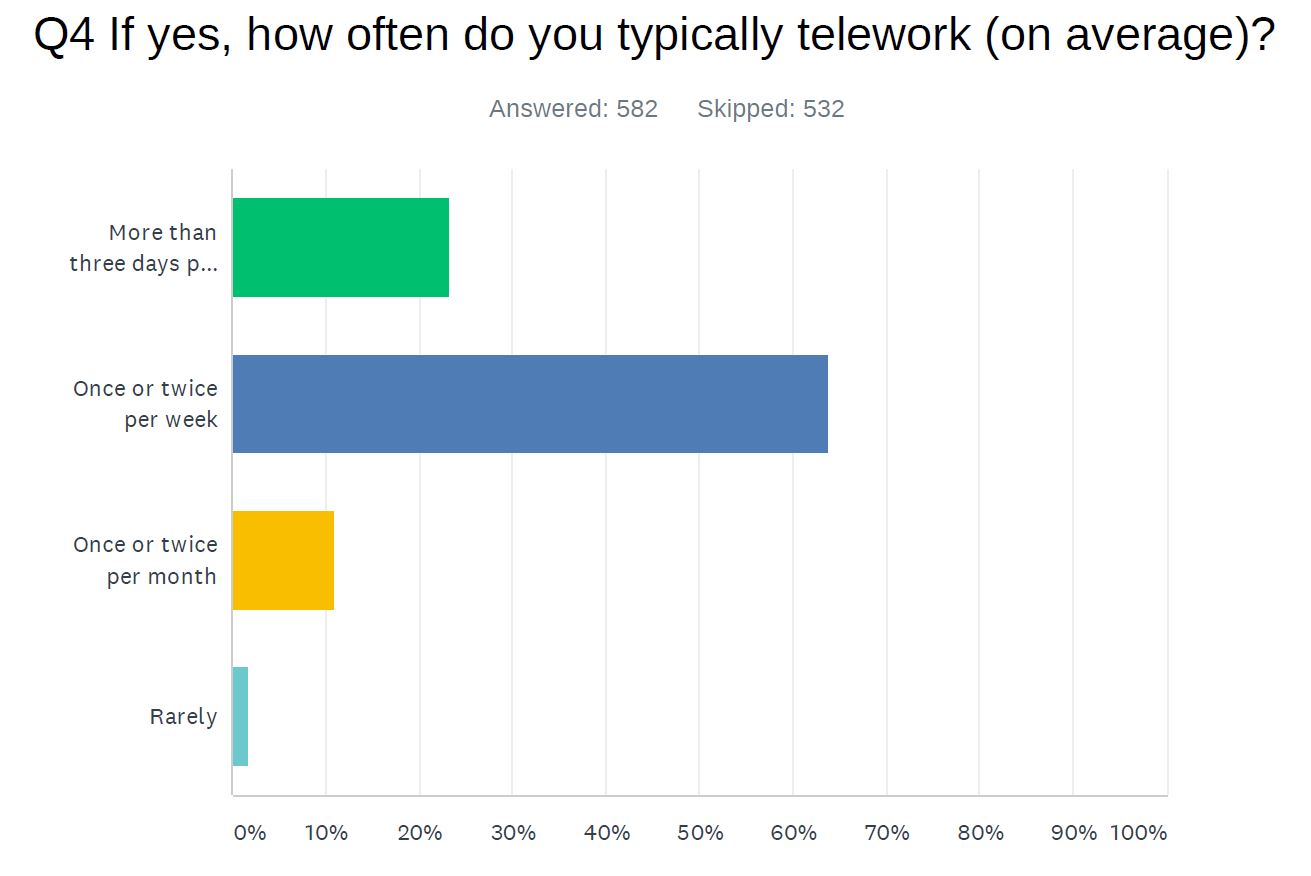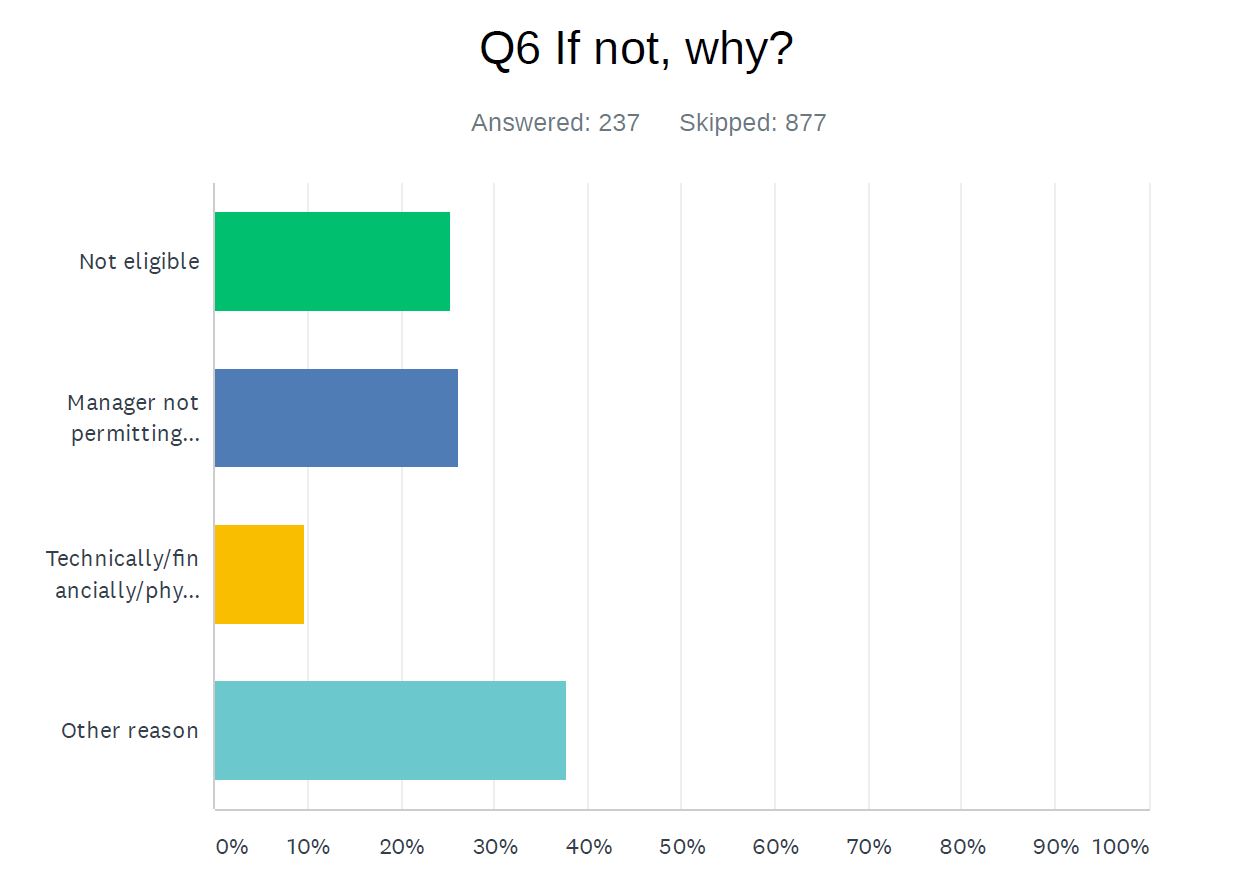
Data Dive
Teleworking among feds ramped up but plenty of issues remain
Federal News Network conducted an exclusive online survey of its readers asking about their current telework situation and found 77% say they are teleworking...
Best listening experience is on Chrome, Firefox or Safari. Subscribe to Federal Drive’s daily audio interviews on Apple Podcasts or PodcastOne.
It may have taken awhile to get going, but a new survey of federal employees shows that strong majority of federal employees are teleworking during the coronavirus pandemic.
But those who say they aren’t working remotely say it’s a combination of factors, including management resistance, having jobs that don’t allow them to telework and a lack of necessary technology either at home or from their agency.
 Federal News Network conducted an online survey of our readers from March 18-23 asking a series of questions about their current telework situation. We received 1,114 responses, with 94% identifying as federal employees; 69% of them said they work for a civilian agency, 13% for the Defense Department and the rest said they were either working for the intelligence community or were in the contractor/non-profit/retiree communities.
Federal News Network conducted an online survey of our readers from March 18-23 asking a series of questions about their current telework situation. We received 1,114 responses, with 94% identifying as federal employees; 69% of them said they work for a civilian agency, 13% for the Defense Department and the rest said they were either working for the intelligence community or were in the contractor/non-profit/retiree communities.
More than half of all respondents said they telework already. The amount of remote work varied greatly, however. Some said they are full-time teleworkers, while others said they work outside the office on snow days or for emergencies.
“I typically telework [three] days a week. As of this week, my supervisor approved me for situational telework due to the C-virus.” — survey respondent
Of those who do telework, the majority are working remotely once or twice a week while just under a quarter are out of the office more than three times a week.
 More than three-quarters of the respondents said they are teleworking because of the coronavirus pandemic. But there is a wider variety of how often respondents said they telework, and frustration is common among employees who are not teleworking full time.
More than three-quarters of the respondents said they are teleworking because of the coronavirus pandemic. But there is a wider variety of how often respondents said they telework, and frustration is common among employees who are not teleworking full time.
“Reluctantly allowed by management, who are still requiring physical attendance in the office once per pay period,” wrote one respondent.
Another said, “[One] day allowed to telework because of coronavirus,” while still another repondent said, “I still have to go in once a week.”
The frustration over either not being eligible or not being allowed to telework also was palpable.
“Duties are documented as 100% telework-eligible, but not yet allowed to do so,” wrote one respondent.
“Nothing from leadership. My laptop is ready to go but can’t work from home because no one is moving fast like there’s not a pandemic happening.” — A frustrated fed said as of March 18.
Several frustrated feds said their agency’s technology wasn’t able to handle teleworking by every employee. “Agency bandwidth cannot support widespread telework,” wrote one person.
“The ‘top priority’ work items are not telework-friendly. I have alternative tasks that are, but am not permitted to do those at this time.” — survey respondent.
Of the 237 respondents who said they weren’t teleworking, a quarter said they were not eligible, and a quarter said their manager wouldn’t permit them to work remotely. More than 37% said there were other reasons, which ranged from lacking the technology at home to not wanting to work from home, to the agency’s technology unable to handle the crush of people working remotely.
Another said, “Commander won’t issue directive to maximize telework eligible employees, leaves individual managers and supervisors guessing?”
And still another said, “[I] work with sensitive information. Have been told we can flex or reduce hours, come in only to take care of priority things.”
Of the 1,070 employees who answered this question, respondents were almost evenly split across all answers, with 26% saying it was easy to do their job remotely and 22% said there was no difference between working at home or at the office.
The comments ranged from continued frustrations with agency virtual private networks to management resistance to classified, sensitive or job that require employees to be in the field or the office.
“Most of my work has to be documented on secure networks, I don’t have access to those networks so while I can do the work I can’t document it,” wrote one respondent.
Some respondents are more excited than others to telework.
“This helps me prove to my old-fashioned supervisor that my job is telework-eligible without sacrificing customer service.” — federal employee
While another wrote, “There is only maybe 5% of my duties that ever require me to be present and even that can be modified or accomplished by someone else in the office.”
Some of the employees actually say they are looking forward to teleworking.
“Actually easier to get work done sometime because less spontaneous meetings and more quite space to focus on work product,” wrote employee.
And another is taking a less serious view of the situation, “Even ‘face time’ could be accomplished with FaceTime.”
Read part 2 of this survey analysis here.
Copyright © 2025 Federal News Network. All rights reserved. This website is not intended for users located within the European Economic Area.
Jason Miller is executive editor of Federal News Network and directs news coverage on the people, policy and programs of the federal government.
Follow @jmillerWFED
Related Stories







